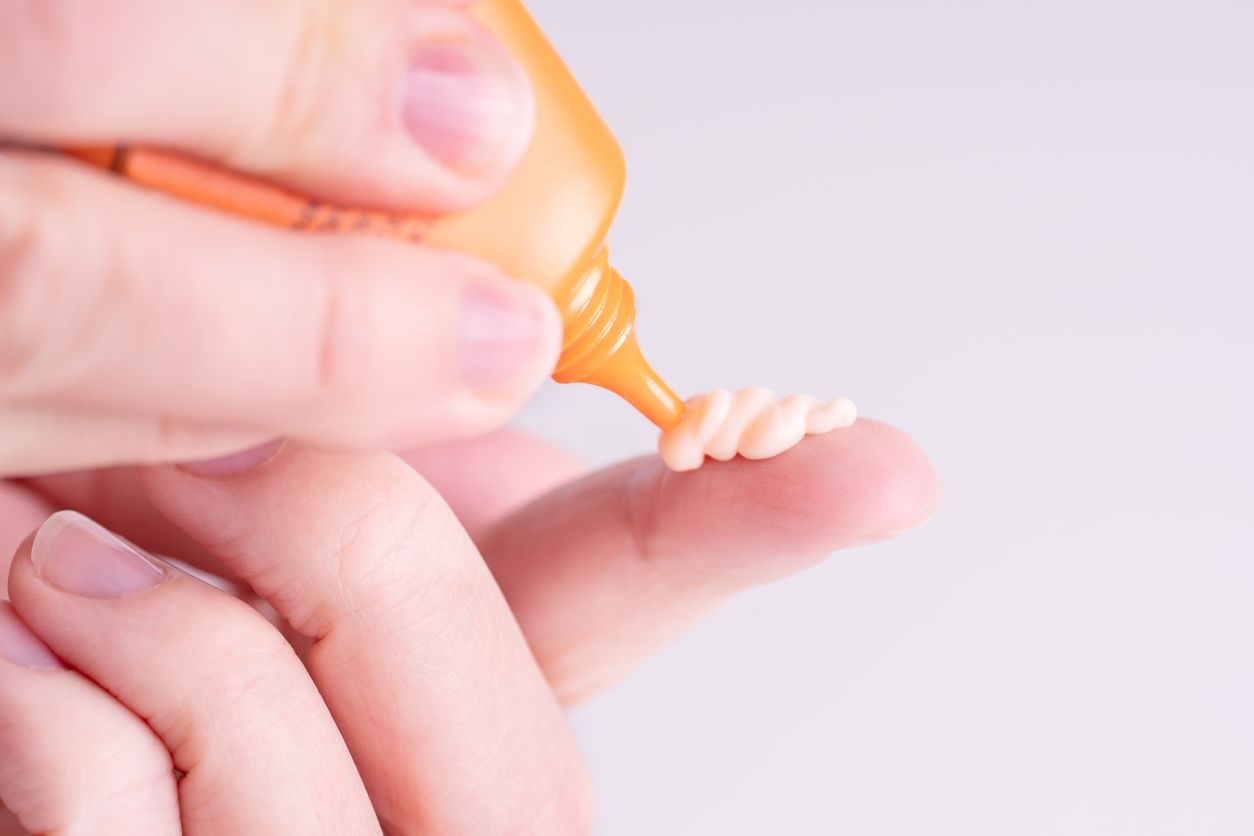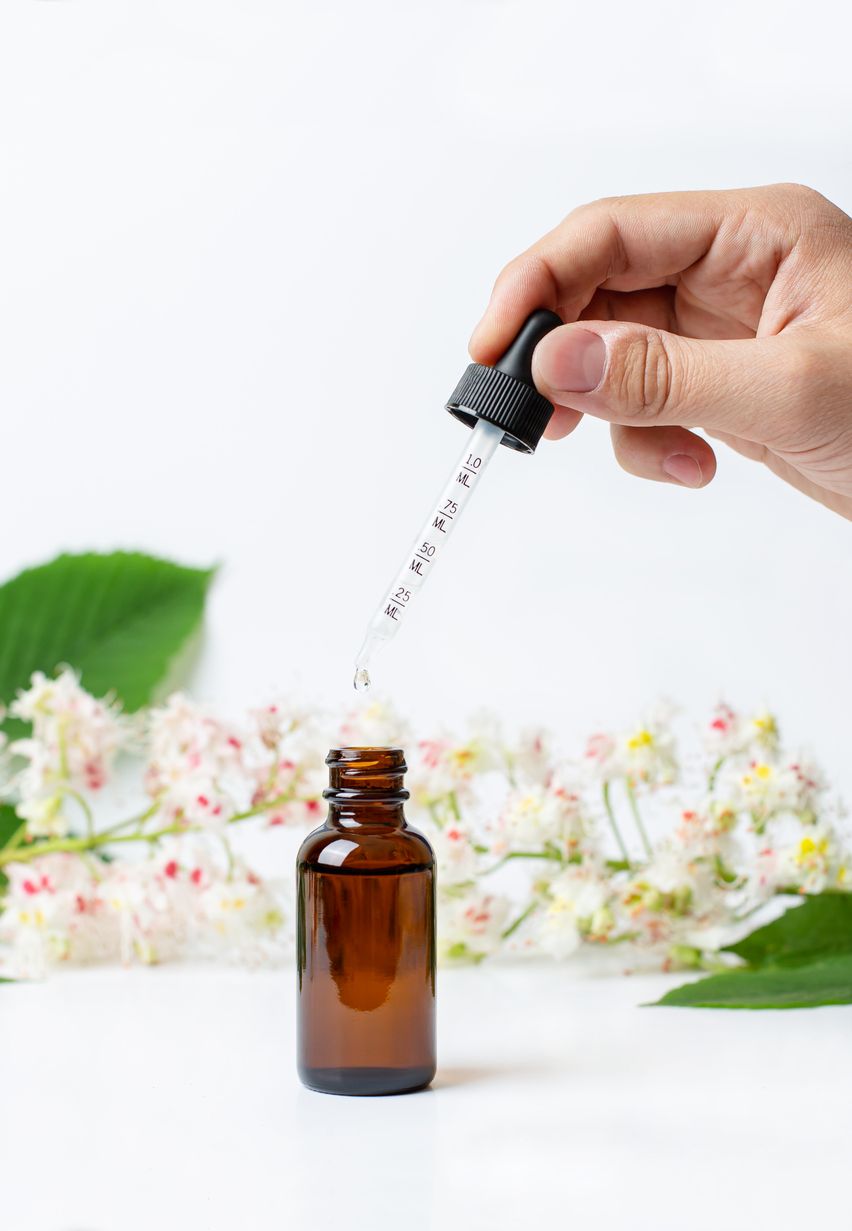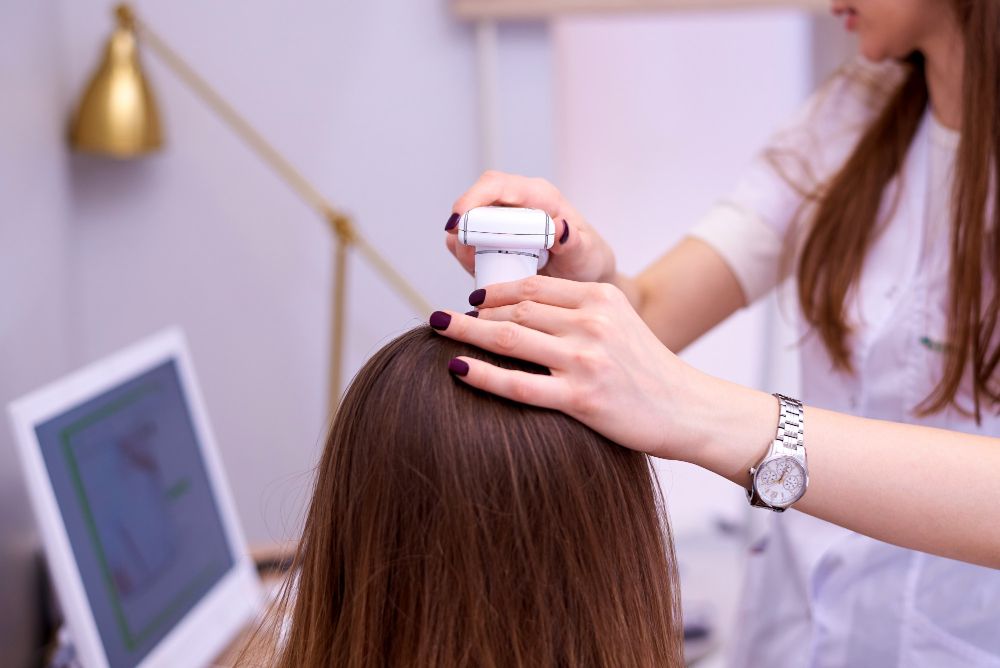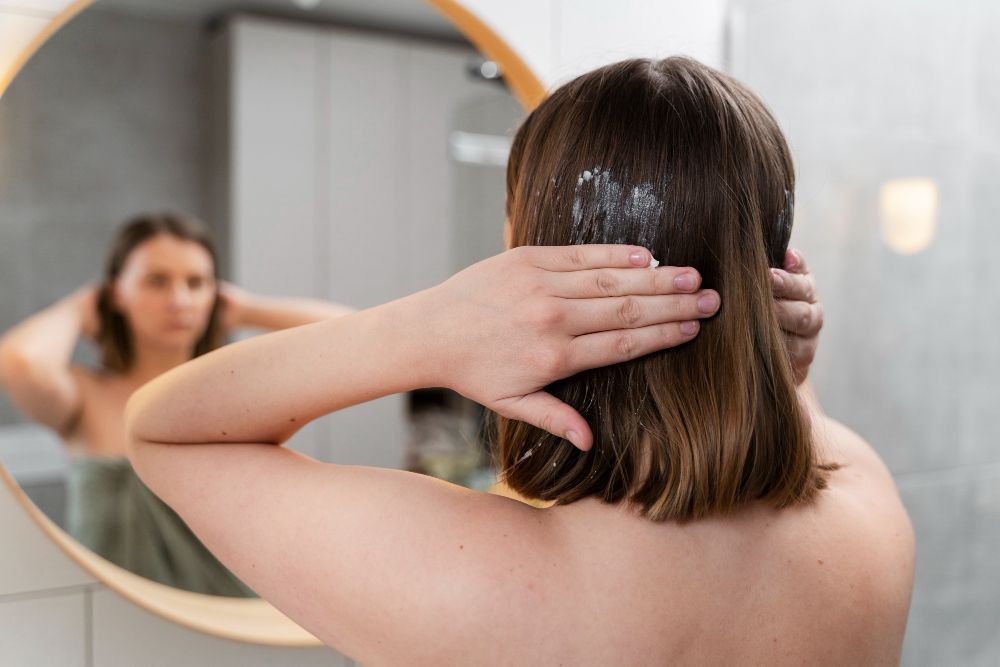- Home
- Trend
- Weight Loss Strategies
- Acne Tips
- Hair Health Information
- Blemish Removal Tips
- Acne Scar Removal Tips
- Muscle Building Techniques
- Intimate Care Tips
- Postpartum Intimate Care
- Eye Bags Wiki
- Tips for Face Slimming
- Secret of Permanent Hair Removal
- Breast Enlargement Tips
- Cure to Snoring
- Marionette Lines
- Skin-Tightening Secrets
Known for its ability to address a wide range of skin concerns, from acne to wrinkles, retinol has been a cornerstone in both cosmetic and dermatological treatments for decades, and few ingredients stand as iconic and versatile as retinol. Its transformative properties not only make it a go-to in anti-aging routines but also help rejuvenate uneven skin tone, sensitive skin, and fine lines.
What is Retinol, and Why is It So Popular?

Retinol, a derivative of vitamin A (also called beta carotene in its plant form), is one of the most researched active ingredients in skincare. It belongs to a broader category of retinoids, which includes more potent versions like retinoic acid, the active form responsible for significant changes in skin structure. When applied to the skin, retinol stimulates the production of new skin cells in the middle layer (dermis), leading to healthier, more youthful skin over time.
By increasing cell turnover, retinol helps slough away dead skin cells that can clog pores, leading to a clearer complexion and reduced breakouts. In addition, it promotes collagen production, which can strengthen the skin barrier and improve skin texture. This makes it particularly effective for individuals looking to address fine lines, dark spots, and neck wrinkles — all common concerns as skin ageing progresses.
Retinol and Skin Aging

As we age, our skin’s ability to regenerate slows down. The natural skin cell turnover process becomes sluggish, resulting in premature ageing marked by fine lines, wrinkles, and uneven skin tone. With regular use, retinol works to speed up this process, helping your skin shed old cells faster and encouraging the production of new, healthy cells.
Research has shown that topical retinoids like retinol can reduce signs of ageing by affecting the genes responsible for collagen production. Collagen is essential for maintaining the skin’s elasticity and firmness, and its gradual loss is what leads to sagging and wrinkled skin.
Clinical trials have demonstrated the clinical efficacy of retinol in improving skin tone, texture, and fine lines. In a study published in the Journal of the American Academy of Dermatology, participants using retinol products over a few months reported significant improvements in overall skin appearance, especially in reducing fine lines and sun damage.
免費體驗
Thermage FLX 5th Generation Face Lift Treatment
1 Minute Self-Registration
Date should not be before minimal date
Types of Retinoids: From Pure Retinol to Prescription Strength
When exploring retinol and its derivatives, it’s important to recognize that not all forms are created equal. The various types of retinoids differ in terms of potency, how quickly they work, and their potential for causing skin irritation. Each form has a specific role and is suitable for different skin types, goals, and tolerance levels. Understanding these distinctions in the retinoid family can help you choose the right product to effectively target your skin concerns without causing unnecessary side effects.
1. Pure Retinol
Pure retinol is one of the most commonly used and available forms of retinoids, often found in over-the-counter (OTC) skincare products. When applied to the skin, pure retinol undergoes a conversion process: the skin first converts it into retinaldehyde and then into retinoic acid, which is the biologically active form that directly impacts cell turnover and collagen production.
Since pure retinol must go through this conversion, it works more gradually than prescription-strength retinoic acid. This slower action makes it a highly effective treatment for long-term improvements in skin ageing, uneven skin tone, and fine lines, without the risk of immediate or severe skin irritation.
Pure retinol is suitable for most skin types, including those who are beginning their retinol use. However, even in this form, it can still cause some dryness and sensitivity, so it’s important to start slowly and build tolerance. The gentler onset also makes pure retinol ideal for those looking to maintain skin texture and firmness over time, with fewer risks of adverse reactions.
2. Retinoic Acid (Tretinoin)
Retinoic acid, also known as tretinoin in its prescription form, is the most potent type of retinoid. Unlike pure retinol, it doesn’t need to be converted by the skin. This direct action means that retinoic acid works much faster and more intensively to speed up skin cell turnover, stimulate collagen production, and reduce the appearance of fine lines and deep wrinkles.
However, this strength comes with higher risks of skin irritation, including redness, peeling, and dryness, especially for individuals with sensitive skin. Because retinoic acid works on a much deeper level and acts quickly, it’s generally prescribed for more severe skin conditions, such as stubborn acne, pronounced premature ageing, and significant sun damage.
This is a prescription retinoid, as it needs to be monitored by a healthcare professional to avoid potential side effects like severe irritation or damage to the skin barrier. Dermatologists often recommend topical tretinoin for patients who have already built up a tolerance to milder retinoids like pure retinol but need faster or more substantial results.
3. Retinyl Esters
Retinyl esters are the mildest form of retinoids and are often used in cosmetic products designed for individuals with highly sensitive skin or those who are new to using retinoids. Like pure retinol, retinyl esters must be converted into retinoic acid by the skin, but the process is slower and less direct. This makes them much gentler and less likely to cause immediate irritation such as dryness or peeling.
Though less potent, retinyl esters still offer anti-aging benefits over time by improving skin tone, promoting mild cell turnover, and stimulating collagen production. They are often included in anti-aging serums or creams marketed for sensitive or acne-prone skin, providing a more gradual introduction to the benefits of retinoids without the harsh side effects seen with more powerful forms like tretinoin.
These formulations are ideal for people looking for long-term maintenance of skin health without the intense side effects that come with more potent treatments. For beginners, retinyl esters are a great starting point before transitioning to stronger forms of retinoids like pure retinol or tretinoin.
4. Retinaldehyde
Another noteworthy type of retinoid, though less commonly mentioned, is retinaldehyde. This form of retinoid is stronger than retinyl esters but less potent than retinoic acid. Like pure retinol, retinaldehyde still requires one conversion step before becoming retinoic acid, which means it works more quickly than retinol but is still gentler than direct retinoic acid treatments.
Many people find retinaldehyde to be a good middle ground between the gentleness of retinyl esters and the intensity of prescription-strength retinoids. It offers significant anti-aging and acne-fighting benefits while causing less skin irritation compared to tretinoin. It can improve skin texture and reduce dark spots and hyperpigmentation without overwhelming sensitive skin.
Choosing the Right Retinoid for Your Skin Type and Concerns
Selecting the right type of retinoid depends on your skin type, concerns, and how your skin reacts to different strengths. Here's a quick guide to help:
Beginner to Retinoid Use or Sensitive Skin
Start with retinyl esters or pure retinol. These are gentle enough to minimise the risk of irritation while offering visible results over time. You can gradually increase the concentration or strength as your skin builds tolerance.
Moderate to Severe Acne or Premature Ageing
Retinoic acid (tretinoin) or retinaldehyde may be more suitable for addressing more severe skin concerns quickly. These forms provide faster results for treating acne and reducing wrinkles, but they require careful application to avoid severe irritation.
Maintenance of Youthful Skin
If you’re looking to maintain healthy, youthful skin or prevent premature ageing, pure retinol is an excellent option for regular use. It helps support skin cell turnover and improves collagen production over time, leading to smoother skin with fewer fine lines.
Did You Use Your Retinol Right?
While retinol is undoubtedly effective, it’s essential to use it correctly to avoid skin irritation or adverse reactions like sun sensitivity. Here are some critical steps for incorporating retinol products into your daily routine:
1. Start Slow
If you’re new to retinol, start by using it two to three times a week. This allows your skin to adjust without causing irritated skin.
2. Apply a Thin Layer
When using retinol serum or cream, make sure to apply a thin layer after cleansing your face. You should also ensure your skin is dry before application to minimise irritation.
3. Use a Gentle Cleanser
To prevent stripping your skin, use a gentle cleanser before applying retinol. This helps maintain the skin barrier, reducing the chances of irritation.
4. Patch Test
Before using retinol, perform a patch test on a small area of your skin to check for any adverse reactions like severe irritation.
5. Wear Sunscreen
One of the most important rules when using retinol is to always wear sunscreen. UV radiation can worsen irritation and negate the benefits of retinol, so apply an SPF of at least 30 during the day to protect your skin from sun exposure.
6. Avoid Mixing with Certain Ingredients
Avoid using benzoyl peroxide or vitamin C simultaneously with retinol as this can lead to increased irritation or reduce the effectiveness of the treatment.
免費體驗
Thermage FLX 5th Generation Face Lift Treatment
1 Minute Self-Registration
Date should not be before minimal date
Retinol and Pregnancy: A Word of Caution
While retinol offers many benefits, it’s important to note that it is not recommended for pregnant women due to the risk of birth defects. Retinoids, including retinol, can potentially be absorbed into the body and affect foetal development. Therefore, it’s crucial to avoid retinol use during pregnancy and consult a healthcare provider for alternative skincare products during this period.
Other Precautions for Using Retinol
While retinol is safe and effective, it can cause skin irritation, particularly when used in high doses or by people with sensitive skin. To avoid adverse effects, follow these precautions:
Avoid Sun Exposure: As mentioned earlier, retinol increases your skin’s sensitivity to UV light, making it essential to avoid direct sunlight. Always apply sunscreen during the day.
Don’t Overuse: Using too much retinol too soon can cause severe irritation. Stick to a pea-sized amount and gradually increase frequency over time.
Be Cautious with Other Active Ingredients: Combining retinol with other potent ingredients, like vitamin C, can lead to skin irritation. It’s best to alternate days or use these ingredients in separate routines (e.g., vitamin C in the morning, retinol at night).
Consult a Skincare Professional: If you have any concerns about using retinol, consult with a skincare professional. This is particularly important for people with sensitive skin or pre-existing conditions like eczema.
Thermage FLX and Retinol: A Synergistic Approach to Anti-Aging
When it comes to maintaining youthful, firm skin, combining cosmetic and dermatological treatments can yield even more impressive results. One such combination that stands out is retinol with advanced skin-tightening technologies like the Thermage FLX 5th Generation Face Lift Treatment, a popular non-invasive procedure offered by Perfect Medical.
The Thermage FLX treatment uses patented monopolar radiofrequency technology to penetrate deep into the skin layers, promoting collagen production and improving skin structure formation. This procedure works harmoniously with retinol to amplify the anti-aging benefits. While retinol enhances skin cell turnover, the Thermage FLX tightens the skin, lifting sagging areas like the jawline and minimising neck wrinkles. Both treatments encourage a more youthful appearance by addressing different layers of the skin.
Combining Thermage FLX and Retinol Products
For those dealing with stubborn signs of ageing like deep wrinkles or uneven skin tone, this combination can significantly boost the effectiveness of your skincare routine. Whereas retinol helps with surface-level issues such as sun damage, clogged pores, and skin texture, Thermage FLX targets deeper layers, offering long-lasting tightening and contouring effects. Together, they form a comprehensive approach to tackling premature ageing.
Ready for faster and more visible results? If you're looking to elevate your skincare regimen with a potent anti-aging duo, consider combining retinol with the Thermage FLX treatment. This pairing helps smooth and firm your skin from the inside out, giving you a radiant, youthful complexion in less time. Book your consultation at Perfect Medical today and discover how this powerful synergy can redefine your beauty routine!
免費體驗
Thermage FLX 5th Generation Face Lift Treatment
1 Minute Self-Registration
Date should not be before minimal date
FAQ

1. What is retinol, and how does it function as a topical treatment for skin conditions?
Retinol is a derivative of vitamin A, a vital nutrient for maintaining healthy skin. It functions as a potent topical treatment by promoting skin cell turnover, which is the process of shedding old skin cells and generating new ones. This acceleration in cell turnover helps address various skin conditions, including acne and dark spots. By encouraging the shedding of dead skin cells, retinol helps prevent clogged pores, reducing the occurrence of acne. Additionally, it regulates oil production, which can further diminish acne breakouts and contribute to a clearer complexion.
2. Can retinol help treat acne, and how should it be incorporated into a skincare routine?
Yes, retinol is highly effective in treating acne due to its ability to unclog pores and reduce inflammation. When incorporated into a skincare routine, it is essential to start gradually to minimise the risk of irritation. Begin by applying a retinol product once or twice a week, allowing your skin to adjust. As your skin becomes accustomed to retinol, you can increase the frequency to every other night or nightly. It’s crucial to apply retinol on clean, dry skin, preferably at night, as it can increase sun sensitivity. Always follow up with a gentle moisturiser to prevent dryness.
3. How does retinol reduce wrinkles and improve skin texture?
Retinol reduces wrinkles through its ability to stimulate collagen production, a protein essential for maintaining skin elasticity and firmness. As we age, collagen levels naturally decline, leading to the formation of fine lines and wrinkles. Retinol promotes skin cell turnover, which aids in the regeneration of the skin, resulting in a more youthful appearance. As skin begins to renew itself, the visibility of fine lines diminishes, and the overall texture of the skin improves.
4. What are the benefits of using retinol as a dietary supplement?
While retinol is predominantly recognized for its topical applications, some formulations can be taken as dietary supplements. These supplements can enhance overall skin health by providing essential nutrients that support skin functions from within. When combined with topical treatments, dietary retinol may help to amplify results, promoting a more radiant complexion. However, it's crucial to approach supplementation with caution; high doses of vitamin A can lead to toxicity and adverse effects, including birth defects if taken during pregnancy.
5. Are there different forms of retinoids, and how do they compare to all-trans retinol?
Yes, retinoids come in various forms, each differing in potency and formulation. Prescription retinoids, like tretinoin, are often more potent and can produce quicker results but may also cause more irritation, especially for those with sensitive skin. Other retinoids, such as retinyl esters, are milder and often found in over-the-counter cosmetic products, making them suitable for individuals new to retinol. All-trans retinol is one of the most effective forms used in skincare, recognized for its ability to treat wrinkles, dark spots, and other skin conditions. Its efficacy stems from its direct action on skin cells, but it may also cause irritation in some users.








